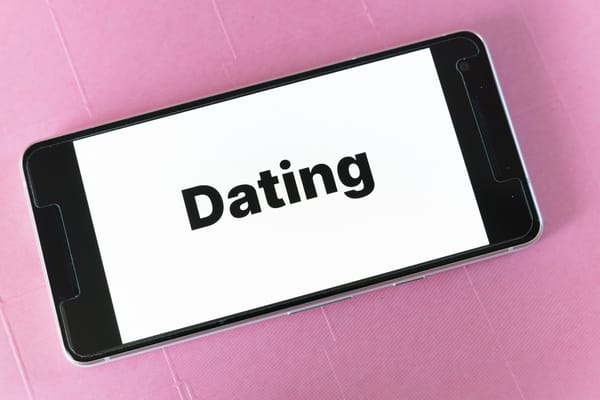Love and Lies: The Tinder Swindler’s Ayleen Charlotte talks to Bitdefender about Romance Scams (Part 2)

In Part 1 of our conversation with Ayleen Charlotte, we explored her personal story and the emotional manipulation that romance scammers use to deceive their victims. Now, in Part 2, we shift our focus to the lessons she learned, and expert advice on how to stay safe from romance scams.
You can also check out this exclusive interview on YouTube:
How did your life change after the scam? How long did it take you to heal emotionally, and what steps did you take to recover?
“It took a long time, longer than I expected. The financial loss was one thing, but the emotional toll was far heavier. I had to rebuild my self-trust and deal with the judgment from people who didn’t understand how this could happen.
Therapy helped, but also sharing my story with my friends and family. Talking about it openly allowed me to process what happened and take back control of my story. Over time, I realized that my experience could help others, and that gave me a new purpose.
Now, I train employees in all sectors who are dealing with fraud victims on how to support fraud victims and give keynotes worldwide about the psychological impact of scams.
I teach people not only how these frauds work but, more importantly, what victims go through emotionally and resilience. There’s a lot of stigma around being scammed, and I want to break that down. It’s not about being gullible it’s about being human.”
Were there any unexpected positive outcomes from going through this ordeal?
“Yes, surprisingly. As painful as it was, it led me to a new path. I’ve learned so much about human psychology, trust, and resilience. More importantly, I now use my experience to educate others and push for change.
The documentary gave me a platform to advocate for fraud victims, and I’ve been able to work with financial institutions, law enforcement, and companies to improve victim support. I also inspired many people to turn their own trauma into something meaningful. So, while I wish it had never happened, I’m grateful for the opportunities that came from it.”
What advice would you give to someone who might be in a similar situation or trying to recover from a romance scam?
“First, do not blame yourself. These scammers are experts in manipulation. They study human behavior, and they know exactly how to exploit trust, kindness, and love.
If you suspect something is off in your relationship, trust your gut. Talk to someone you trust an outsider’s perspective can help you see things more clearly. If you’ve already been scammed, know that healing takes time, but you will get through it. Seek support, whether from professionals, survivor communities, or friends who understand.
Most importantly, remember that this experience does not define you. You are not ‘stupid’ or naïve.’ You are someone who believes in love and trust things that should never be exploited.”
What red flags do you wish you had noticed earlier? Were there any specific psychological tactics the scammer used that made it difficult to see through the scam?
“Looking back, the biggest red flag was how fast everything moved. The love bombing at the beginning of the relationship, the constant attention, the gestures, and the deep emotional connection were designed to lower my defenses.
Then came the sense of urgency emergency situations where he needed money, making it seem like I was the only person who could help. The scammer also used reciprocity: he had spent time and money on me before, so it felt natural to return the favor.
Another red flag was secrecy. He framed it as part of his dangerous lifestyle, but in reality, it was a way to keep me from questioning things too much.
The hardest part is that these tactics work because they target human emotions, not logic. That’s why I now dedicate my time to educating others not just about the scams themselves, but about the psychological impact they have on victims. Awareness is key, and the more we talk about it, the harder it becomes for scammers to operate in the shadows.”
What do you think the public still misunderstands about romance scams, and what would you say to people looking for love online in 2025?
"Many people still believe that romance scams only happen to those who are naïve or gullible, but that’s not true. These scams are highly sophisticated, emotionally manipulative, and designed to exploit even the most intelligent and successful individuals. Scammers take their time to build trust, making it incredibly difficult for victims to recognize the deception until it’s too late.
For anyone looking for love online in 2025, I would say: stay hopeful but also stay cautious. Verify identities, never send money to someone you haven’t met in person, and be wary of anyone who creates a sense of urgency or secrecy. If something feels off, trust your instincts and seek advice from a friend or an expert."
In your opinion, how have romance scams changed since your experience? With advancements in AI and deepfake technology, do you think scammers are becoming harder to detect?
Romance scams have evolved significantly since my experience. Scammers online are using AI-generated profiles, deepfake videos, and voice-cloning technology to make their deception even more convincing. In the past, there were often small red flags such as poor grammar, inconsistencies in stories, or stolen photos. Now, with AI, scammers can create hyper-realistic fake personas that are almost impossible to detect with the naked eye.
This makes it even more critical to verify identities through multiple channels. A video call used to be a good way to confirm someone was real, but even that can now be faked. We need to be more skeptical and rely on platforms and security measures that can detect these manipulations.
If you could say one thing to someone who is currently being scammed but doesn’t realize it, what would it be?
I would say: If this person truly cares about you, why are they always asking for something? Money, secrecy, or immediate action? Why are they not letting you think rationally? Love should make you feel secure, not pressured. Step back for a moment and talk to someone you trust outside of the relationship. A fresh perspective can reveal things that are hard to see when you’re emotionally invested.
Do you feel that platforms like dating apps or social media do enough to protect users? What more could they do?
Dating apps and social media platforms have improved their safety features, but they are still far from doing enough. Many scams could be prevented if platforms implemented stronger identity verification processes, such as mandatory video verification or blockchain-backed identity checks.
Additionally, platforms should be more proactive in detecting fraudulent accounts. AI can identify suspicious behavior patterns, yet too often, responsibility falls on users to report scams after they have already been harmed. Transparency about reported scams and real time warnings within conversations could also help prevent more people from falling victim.
How can individuals stay ahead of evolving scam tactics in an increasingly digital landscape?
Education and awareness are key. Just as cybersecurity is now an essential part of online life, understanding fraud tactics should be too. Individuals need to stay informed about the latest scam techniques, question too-good-to-be-true situations, and use technology to their advantage for example reverse image searches, identity verification tools, and even financial transaction tracking.
Most importantly, people should talk openly about fraud and scams. The stigma around being scammed prevents many victims from coming forward, which only helps scammers continue their work. The more we share knowledge and experiences, the harder it becomes for fraudsters to succeed.
The Fight Against Romance Scams: Ayleen’s Mission
Today, Ayleen Charlotte is not just a romance scam survivor—she’s an advocate. She travels the world, giving speeches, training professionals on how to support fraud victims, and working with organizations to push for better protections against online scams.
Her story serves as a powerful reminder that romance scams are not about gullibility but about the human desire for love and connection. If even one person can spot the warning signs and protect themselves from falling victim, her bravery in speaking out has made a difference.
At Bitdefender, we stand with Ayleen and all victims of romance fraud. If you or someone you know has been targeted, be confident that you are not alone—and that there is a way forward.
Expert Bitdefender Insight on Romance Scams
"Romance scammers are getting smarter, using AI and deepfake technology to make their cons more convincing than ever. They exploit emotions, build trust, and create a false sense of connection before asking for money. As technology evolves, so do their tactics, which is why we all need to stay informed, question too-good-to-be-true situations, and use security tools to verify identities. Awareness and vigilance are our best defenses."
— Razvan Costache, Director of Innovation at Bitdefender and Advisory Board Member for GASA
Final Thoughts on Your Online Safety
- Trust your instincts. If something feels off, it probably is.
- Never send money to someone you haven’t met in person. No matter the reason or urgency.
- Be skeptical of secrecy. Scammers often create elaborate excuses to prevent verification.
- Use video calls wisely. While scammers are getting better at faking identities, inconsistencies in their behavior may still expose them.
- Talk to someone you trust. An outsider’s perspective can help you see red flags you might miss.
- Use technology to your advantage. Bitdefender Scamio, our free AI-powered scam detector, can help you assess potential red flags in messages from your future love interest. You can talk to Scamio to evaluate suspicious requests and ensure you're not being manipulated.
You can also boost your overall online security by opting for a comprehensive security solution to fend off malicious online activity of all kinds.
Let’s keep the conversation going and ensure that no one else falls victim to the same deception.
Want to Learn More?
Follow Ayleen’s work on social media and stay updated with Bitdefender’s latest scam awareness initiatives on our blog.
tags
Author
Alina is a history buff passionate about cybersecurity and anything sci-fi, advocating Bitdefender technologies and solutions. She spends most of her time between her two feline friends and traveling.
View all postsRight now Top posts
How to Protect Your WhatsApp from Hackers and Scammers – 8 Key Settings and Best Practices
April 03, 2025
Outpacing Cyberthreats: Bitdefender Together with Scuderia Ferrari HP in 2025
March 12, 2025
Streamjacking Scams On YouTube Leverage CS2 Pro Player Championships to Defraud Gamers
February 20, 2025
How to Identify and Protect Yourself from Gaming Laptop Scams
February 11, 2025
FOLLOW US ON SOCIAL MEDIA
You might also like
Bookmarks







